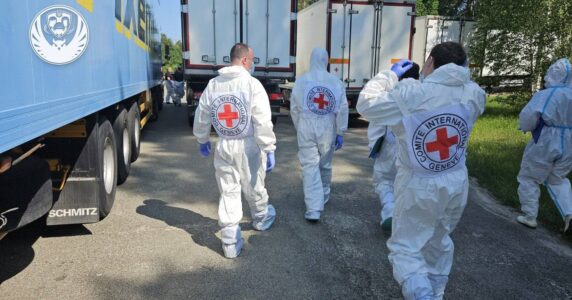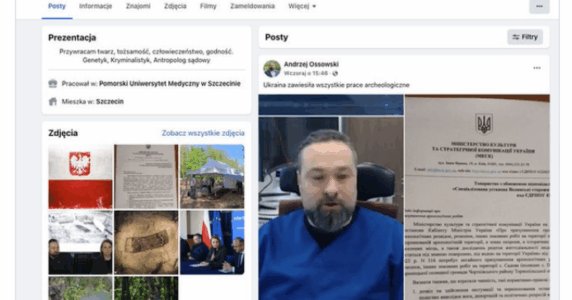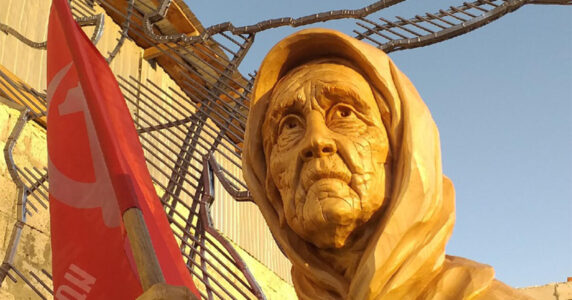Navigation and useful materials
Since the beginning of the full-scale invasion, Russia has been pushing the idea that “Russia is here forever” in the occupied regions. They’ve been doing this in an attempt to “remove doubts” associated with the retreat of their troops and push locals towards open collaboration. People have been encouraged to take positions in Russian-backed administrations, get Russian passports, and make false statements for Russian TV.
Now the Armed Forces of Ukraine are fighting back so fiercely and forcing “the world’s second army” to scamper away. The people who agreed to work with Russians will now be viewed as criminals. After the territories are liberated, they will be tried and punished. Read on to find out more about how Russia is lying to its supporters and what fate awaits them in Ukraine.
Who is a collaborator
A collaborator is a citizen of Ukraine who cooperates with the enemy, serving their interests and harming their country of citizenship. This is the legal definition of the word in Ukraine.
Collaborators include those Ukrainians who publicly deny the fact of military aggression against Ukraine or the occupation of part of its territory, make calls to support the aggressor, aid the enemy’s military and enemy-backed administrations, etc.
Collaborators are also Ukrainians who have willingly accepted “positions” in illegal local “governments” or helped organize and hold illegal referendums in the temporarily occupied Kherson, Luhansk, Donetsk, and Zaporizhzhia regions.
In addition, collaborators include education sector employees who have contributed to implementing Russian standards in educational institutions in the temporarily occupied territories.
By law, cooperation with Russia can be regarded either as an immoral act or as a crime. In any case, the court’s decision will be a must. The court will decide in which category each collaboration case belongs and impose penalties ranging from penal labor to life imprisonment.
Who has already made it to Ukraine’s suspect list
Ukrainian law enforcement agencies are currently investigating 1,358 criminal cases of collaboration with the Russian invaders and served 223 notices of suspicion of collaborationism. The head of the National Police of Ukraine, Ihor Klymenko, shared the data recently.
According to the police, mostly the local officials and law enforcement officers joined the occupiers. Some educators collaborated with the enemy too. “To date, 19 criminal proceedings have been registered against school principals and teachers who tried to follow Russian programs, brainwashing not only parents but also kids. Four of them have already received notices of suspicion,” Klymenko noted.
How collaborators are getting “played” by Russia
Over seven months into Russia’s war against Ukraine, quite a few of those who cooperated with the Russian authorities mysteriously died in the occupied territories. Among them are “local deputies”, “officials,” and “police officers”. It is currently known of 13 murders and at least 10 attempted murders. Most of these took place in the Kherson region.
The Ukrainian authorities have acknowledged their involvement only in some of these incidents. They emphasize that it is mostly guerilla activity that targets suspects of collaboration with Russia. And Russia, as is its fashion, accuses Ukraine of what it claims to be terrorist attacks.
The highest-profile case was the assassination of the so-called “Prosecutor General” of the “Luhansk People’s Republic,” Serhiy Horenko, and his deputy Kateryna Steglenko. The Russian media did not hesitate to call it a terrorist act and accuse Ukraine’s Armed Forces. Horenko and Steglenko were killed in the Prosecutor General’s Office building explosion. But the cause of that explosion is unclear.
Presidential adviser Mykhailo Podolyak says that panic is spreading across the quasi-republics. According to him, the Gorenko case is most likely connected with internal disputes between criminal groups. His alternative assumption is that it’s about Russia’s attempts to neutralize witnesses of eight years of Russian war crimes on Ukraine’s territories.
Perhaps one of the most publicized cases in the temporarily occupied territories was the assassination of Oleksiy Kovalyov. A politician representing the Servant of the People party, Kovalyov was appointed by the occupiers as “deputy head of the pro-Russian administration” in the city of Hola Prystan. At the end of August, Kovalev was shot in the head in his own house in Kherson.
Our next cases also took place in the South of Ukraine, this time in the city of Berdiansk in the Zaporizhzhia region. In August, Oleksandr Kolesnykov, the Russian-appointed “deputy director for traffic safety,” was blown up in his car. Later, the city’s “military commandant,” Artem Bardin, was also killed in a car explosion near the city administration building downtown. And then there was the assassination of Oleg Boyko, the “deputy head of the administration” in charge of utility services, and his wife Liudmila, who was the head of the “election commission.”
Moreover, the Russian media recently spread the news of the alleged lethal poisoning of the “head of the Kherson regional occupation administration,” Volodymyr Saldo. Later the rumor was dispelled by Saldo himself, who attended a meeting with Putin and asked that the Kherson region, among others, be joined to Russia.
Judging from some of the liberated areas of the Kharkiv region, the fate of Ukrainian collaborators doesn’t bother the Russians much. Many of them trusted the Russia-backed authorities so much that they stayed — and now, Ukrainian law enforcement is dealing with them.
For example, on September 16, a quisling was found who claimed to be “the chief of police.” Apparently, Russians only worry about themselves: they will flee back to Russia without even taking local turncoats with them.
That is why the Ukrainian authorities encourage all Ukrainians in the temporarily occupied territories not to collaborate with the enemy or fall for propaganda under any circumstances. Full de-occupation is only a matter of time.
Meanwhile, Russia only wants collaborators to do the dirty work. When they’re done, especially after the pseudo-referendums, collaborators will be taken care of as witnesses of Russian crimes.
If you have found a spelling error, please, notify us by selecting that text and pressing Ctrl+Enter.


